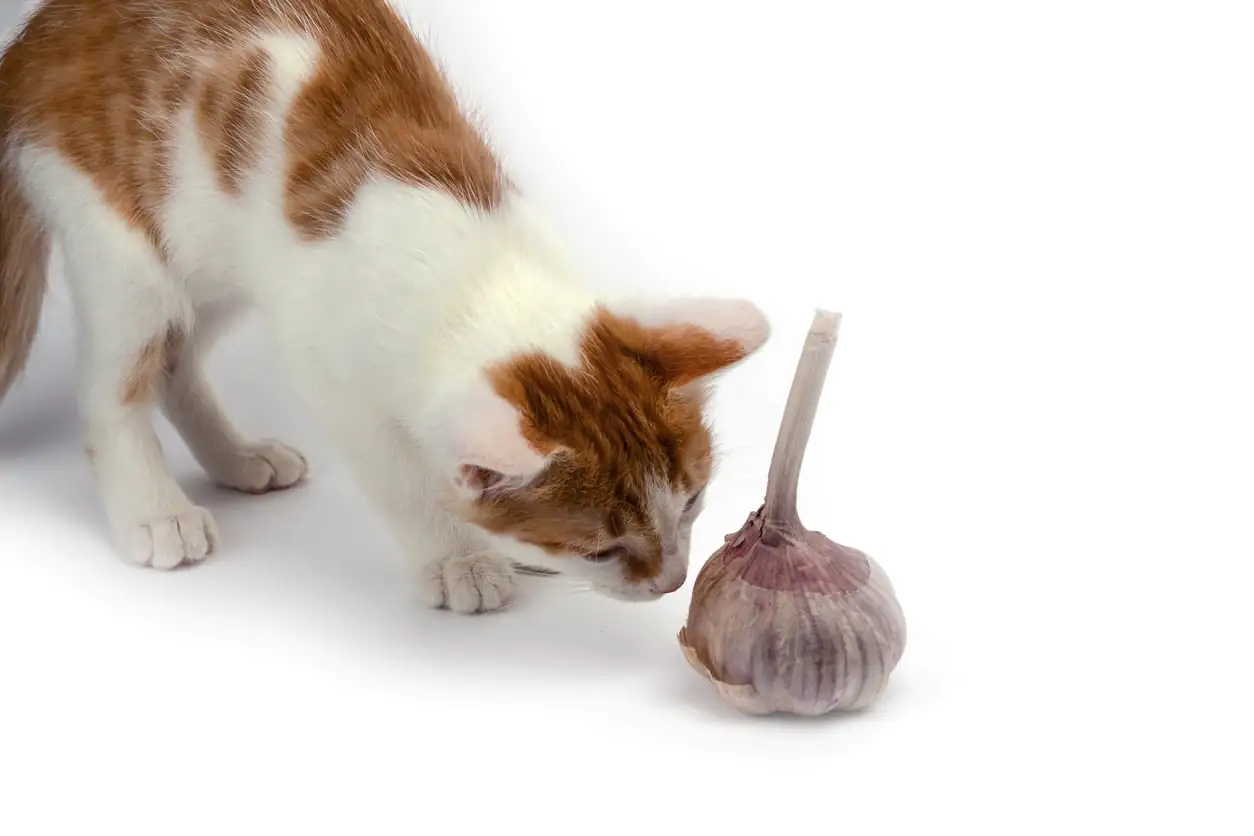In the kitchen, they are everywhere: in soups, gratins, pies… And for good reason, they are perfect ingredients to spice up a gentle dish. Only problem: although they are very popular with humans, garlic and onions can be particularly dangerous for cats. Explanations!
Risks of poisoning
All vegetables that belong to the alliaceae family (garlic, onion but also leek, shallot, chives, etc.) should be banned from your cat’s diet. And whether they are raw or cooked.
Indeed, these foods are toxic for our feline friends, just as is also the case for dogs. As proof, the consumption of a single onion can lead to poisoning in a 10 kg dog. Gold, cats are even more sensitive than dogs on this subject. Among our feline friends, a tablespoon of onion can be enough to poison a cat weighing 3 kg. Hence the need to be particularly vigilant in the kitchen…
But what could possibly be so dangerous about these vegetables? In reality, they contain sulfur compounds that destroy the animal’s red blood cellscausing anemia. Respiratory and cardiac problems then follow, and even acute kidney failure.
What to do if your cat has ingested garlic or onion?
If your cat has eaten garlic or onion, immediately remove any remains from its mouth that it may continue to chew. Afterwards, try to find out how much he ingested.

If your furball doesn’t seem to have eaten too much, monitor its general condition for a week. And in particular the color of his urine: if they get too dark, it’s a sign that something is wrong. Be very vigilant for several days because the first symptoms of garlic or onion poisoning may appear. only 1 to 7 days after ingestion. In addition to dark (or even brown) urine, they can result in vomiting, diarrhea, severe fatigue, shortness of breath, an increase in heart rate or even pale mucous membranes.
On the other hand, if your cat has consumed a large quantity, go to the veterinarian immediately. This is a vital emergency.
Dishes to particularly watch out for
Even minimal consumption but repeatedly can lead to food poisoning in cats. In fact, it is essential to keep an eye on the dishes you are simmering or the leftovers lying around in the kitchen and which contain garlic or onions.
Dishes that you should not be wary of but which can have serious consequences for your cat are, among others, onion soup, onion pie, baby food containing onions and all recipes that contain onion in more or less quantity.
Also note that your cat may very well steal an onion or garlic from the kitchen and play with it as if it were a ball. In this case, he may ingest it inadvertently. Hence the interest in also protecting these foods by placing them in a closed cupboard for example.


